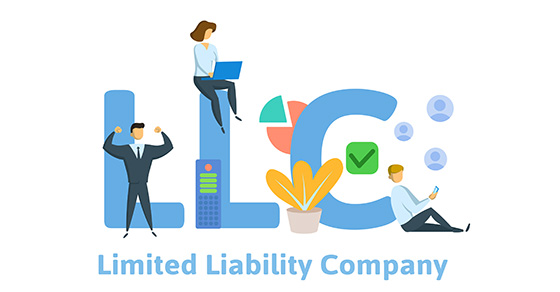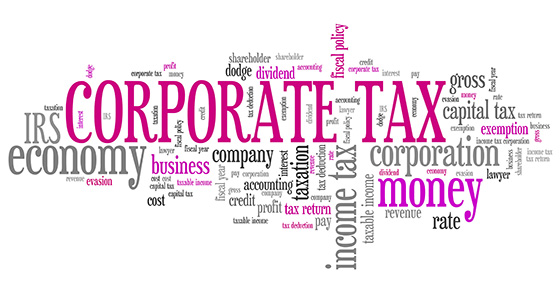To help defray health care costs, many people now contribute to, or are thinking about setting up, Health Savings Accounts (HSAs). With these accounts, individuals can pay for certain medical expenses on a tax advantaged basis.

The Basics
With HSAs, you take more responsibility for your health care costs. If you’re covered by a qualified high-deductible health plan, you can contribute pretax income to an employer-sponsored HSA — or make deductible contributions to an HSA you set up yourself.
Continue Reading
Summer is here, so you might be thinking about getting some vacation time. If you’re self-employed or a business owner, you have a golden opportunity to combine a business trip with a few extra days of vacation and offset some of the cost with a tax deduction. But be careful, or you might not qualify for the write-offs you’re expecting.

Basic Rules
Business travel expenses can potentially be deducted if the travel is within the United States and the expenses are:
- “Ordinary and necessary” and
- Directly related to the business.
Note: The tax rules for foreign business travel are different from those for domestic travel.
Business owners and the self-employed are generally eligible to deduct business travel expenses if they meet the tests described above. However, under the Tax Cuts and Jobs Act, employees can no longer deduct such expenses. The potential deductions discussed in this article assume that you’re a business owner or self-employed.
A Business-Vacation Trip
Transportation costs to and from the location of your business activity may be 100% deductible if the primary reason for the trip is business rather than pleasure. But if vacation is the primary reason for your travel, generally no transportation costs are deductible. These costs include plane or train tickets, the cost of getting to and from the airport, luggage handling tips and car expenses if you drive. Costs for driving your personal car are also eligible.
The key factor in determining whether the primary reason for domestic travel is business is the number of days you spend conducting business vs. enjoying vacation days. Any day principally devoted to business activities during normal business hours counts as a business day. In addition:
- Your travel days count as business days, as do weekends and holidays — if they fall between days devoted to business and it wouldn’t be practical to return home.
- Standby days (days when your physical presence might be required) also count as business days, even if you aren’t ultimately called upon to work on those days.
Bottom line: If your business days exceed your personal days, you should be able to claim business was the primary reason for a domestic trip and deduct your transportation costs.
What Else Can You Deduct?
Once at the destination, your out-of-pocket expenses for business days are fully deductible. Examples of these expenses include lodging, meals (subject to the 50% disallowance rule), seminar and convention fees, and cab fare. Expenses for personal days aren’t deductible.
Keep in mind that only expenses for yourself are deductible. You can’t deduct expenses for family members traveling with you, including your spouse — unless they’re employees of your business and traveling for a bona fide business purpose.
Keep Good Records
Be sure to retain proof of the business nature of your trip. You must properly substantiate all of the expenses you’re deducting. If you get audited, the IRS will want to see records during travel you claim was for business. Good records are your best defense. Additional rules and limits apply to travel expense deductions. Please contact us if you have questions.
If federal income tax and employment taxes (including Social Security) are withheld from employees’ paychecks and not handed over to the IRS, a harsh penalty can be imposed. To make matters worse, the penalty can be assessed personally against a “responsible individual.”
If a business makes payroll tax payments late, there are escalating penalties. And if an employer fails to make them, the IRS will crack down hard. With the “Trust Fund Recovery Penalty,” also known as the “100% Penalty,” the IRS can assess the entire unpaid amount against a responsible person who willfully fails to comply with the law.

Some business owners and executives facing a cash flow crunch may be tempted to dip into the payroll taxes withheld from employees. They may think, “I’ll send the money in later when it comes in from another source.” Bad idea!
No Corporate Protection
The corporate veil won’t shield corporate officers in these cases. Unlike some other liability protections that a corporation or limited liability company may have, business owners and executives can’t escape personal liability for payroll tax debts.
Continue Reading
When you retire, you may consider moving to another state — say, for the weather or to be closer to your loved ones. Don’t forget to factor state and local taxes into the equation. Establishing residency for state tax purposes may be more complicated than it initially appears to be.

Identify All Applicable Taxes
It may seem like a no-brainer to simply move to a state with no personal income tax. But, to make a good decision, you must consider all taxes that can potentially apply to a state resident. In addition to income taxes, these may include property taxes, sales taxes and estate taxes.
Continue Reading
Due to the massive changes in the Tax Cuts and Jobs Act (TCJA), the 2019 filing season resulted in surprises. Some filers who have gotten a refund in past years wound up owing money. The IRS reports that the number of refunds paid this year is down from last year — and the average refund is lower. As of May 10, 2019, the IRS paid out 101,590,000 refunds averaging $2,868. This compares with 102,582,000 refunds paid out in 2018 with an average amount of $2,940.
Of course, receiving a tax refund shouldn’t necessarily be your goal. It essentially means you’re giving the government an interest-free loan.

Law Changes and Withholding
Last year, the IRS updated the withholding tables that indicate how much employers should hold back from their employees’ paychecks. In general, the amount withheld was reduced. This was done to reflect changes under the TCJA — including the increase in the standard deduction, suspension of personal exemptions and changes in tax rates.
Continue Reading
If you’re a business owner and you hire your children (or grandchildren) this summer, you can obtain tax breaks and other nontax benefits. The kids can gain on-the-job experience, save for college and learn how to manage money. And you may be able to:
- Shift your high-taxed income into tax-free or low-taxed income,
- Realize payroll tax savings (depending on the child’s age and how your business is organized), and
- Enable retirement plan contributions for the children.

It Must Be a Real Job
When you hire your child, you get a business tax deduction for employee wage expenses. In turn, the deduction reduces your federal income tax bill, your self-employment tax bill (if applicable), and your state income tax bill (if applicable). However, in order for your business to deduct the wages as a business expense, the work performed by the child must be legitimate and the child’s salary must be reasonable.
Continue Reading
Roth 401(k) accounts have been around for 13 years now. Studies show that more employers are offering them each year. A recent study by the Plan Sponsor Council of America (PSCA) found that Roth 401(k)s are now available at 70% of employer plans, up from 55.6% of plans in 2016.

However, despite the prevalence of employers offering Roth 401(k)s, most employees aren’t choosing to contribute to them. The PSCA found that only 20% of participants who have access to a Roth 401(k) made contributions to one in 2017. Perhaps it’s because they don’t understand them.
Continue Reading
Spring and summer are the optimum seasons for selling a home. And interest rates are currently attractive, so buyers may be out in full force in your area. Freddie Mac reports that the average 30-year fixed mortgage rate was 4.14% during the week of May 2, 2019, while the 15-year mortgage rate was 3.6%. This is down 0.41 and 0.43%, respectively, from a year earlier.

But before you contact a realtor to sell your home, you should review the tax considerations.
Sellers Can Exclude Some Gain
If you’re selling your principal residence, and you meet certain requirements, you can exclude up to $250,000 ($500,000 for joint filers) of gain. Gain that qualifies for the exclusion is also excluded from the 3.8% net investment income tax.
Continue Reading
If you’re getting a divorce, you know it’s a highly stressful time. But if you’re a business owner, tax issues can complicate matters even more. Your business ownership interest is one of your biggest personal assets and your marital property will include all or part of it.

Transferring Property Tax-Free
You can generally divide most assets, including cash and business ownership interests, between you and your soon-to-be ex-spouse without any federal income or gift tax consequences. When an asset falls under this tax-free transfer rule, the spouse who receives the asset takes over its existing tax basis (for tax gain or loss purposes) and its existing holding period (for short-term or long-term holding period purposes).
Continue Reading
It’s that time of year when many people who filed their tax returns in April are checking their mail or bank accounts to see if their refunds have landed. According to the IRS, most refunds are issued in less than 21 calendar days. However, it may take longer — and in rare cases, refunds might not come at all.

Your Refund Status
If you’re curious about when your refund will arrive, you can use the IRS “Where’s My Refund?” tool. Go to https://bit.ly/2cl5MZo and click “Check My Refund Status.” You’ll need your Social Security number, your filing status (single, married joint filer, etc.) and your exact refund amount.
Continue Reading
Have you recently started a new business? Or are you contemplating starting one? Launching a new venture is a hectic, exciting time. And as you know, before you even open the doors, you generally have to spend a lot of money. You may have to train workers and pay for rent, utilities, marketing and more.

Entrepreneurs are often unaware that many expenses incurred by start-ups can’t be deducted right away. You should be aware that the way you handle some of your initial expenses can make a large difference in your tax bill.
Continue Reading
Many employers prefer to classify workers as independent contractors to lower costs, even if it means having less control over a worker’s day-to-day activities. But the government is on the lookout for businesses that classify workers as independent contractors simply to reduce taxes or avoid their employee benefit obligations.

Why It Matters
When your business classifies a worker as an employee, you generally must withhold federal income tax and the employee’s share of Social Security and Medicare taxes from his or her wages. Your business must then pay the employer’s share of these taxes, pay federal unemployment tax, file federal payroll tax returns and follow other burdensome IRS and U.S. Department of Labor rules.
Continue Reading
While the number of plug-in electric vehicles (EVs) is still small compared with other cars on the road, it’s growing — especially in certain parts of the country. If you’re interested in purchasing an electric or hybrid vehicle, you may be eligible for a federal income tax credit of up to $7,500. (Depending on where you live, there may also be state tax breaks and other incentives.)

However, the federal tax credit is subject to a complex phaseout rule that may reduce or eliminate the tax break based on how many sales are made by a given manufacturer. The vehicles of two manufacturers have already begun to be phased out, which means they now qualify for only a partial tax credit.
Continue Reading
Once your 2018 tax return has been successfully filed with the IRS, you may still have some questions. Here are brief answers to three questions that we’re frequently asked at this time of year.

Question #1: What Tax Records Can I Throw Away Now?
At a minimum, keep tax records related to your return for as long as the IRS can audit your return or assess additional taxes. In general, the statute of limitations is three years after you file your return. So you can generally get rid of most records related to tax returns for 2015 and earlier years. (If you filed an extension for your 2015 return, hold on to your records until at least three years from when you filed the extended return.)
Continue Reading
If you read the Internal Revenue Code (and you probably don’t want to!), you may be surprised to find that most business deductions aren’t specifically listed. It doesn’t explicitly state that you can deduct office supplies and certain other expenses.

Some expenses are detailed in the tax code, but the general rule is contained in the first sentence of Section 162, which states you can write off “all the ordinary and necessary expenses paid or incurred during the taxable year in carrying on any trade or business.”
Continue Reading
Do you want to save more for retirement on a tax-favored basis? If so, and if you qualify, you can make a deductible traditional IRA contribution for the 2018 tax year between now and the tax filing deadline and claim the write-off on your 2018 return. Or you can contribute to a Roth IRA and avoid paying taxes on future withdrawals.

You can potentially make a contribution of up to $5,500 (or $6,500 if you were age 50 or older as of December 31, 2018). If you’re married, your spouse can potentially do the same, thereby doubling your tax benefits.
The deadline for 2018 traditional and Roth contributions for most taxpayers is April 15, 2019 (April 17 for those in Maine and Massachusetts).
Continue Reading
The Tax Cuts and Jobs Act created a new federal tax credit for employers that provide qualified paid family and medical leave to their employees. It’s subject to numerous rules and restrictions and the credit is only available for two tax years — those beginning between January 1, 2018, and December 31, 2019. However, it may be worthwhile for some businesses.

The Value of the Credit
An eligible employer can claim a credit equal to 12.5% of wages paid to qualifying employees who are on family and medical leave, if the leave payments are at least 50% of the normal wages paid to them. For each 1% increase over 50%, the credit rate increases by 0.25%, up to a maximum credit rate of 25%.
Continue Reading
If you’re the parent of a child who is age 17 to 23, and you pay all (or most) of his or her expenses, you may be surprised to learn you’re not eligible for the child tax credit. But there’s a dependent tax credit that may be available to you. It’s not as valuable as the child tax credit, but when you’re saving for college or paying tuition, every dollar counts!

Background of the Credits
The Tax Cuts and Jobs Act (TCJA) increased the child credit to $2,000 per qualifying child under the age of 17. The law also substantially increased the phaseout income thresholds for the credit so more people qualify for it. Unfortunately, the TCJA eliminated dependency exemptions for older children for 2018 through 2025. But the TCJA established a new $500 tax credit for dependents who aren’t under-age-17 children who qualify for the child tax credit. However, these individuals must pass certain tests to be classified as dependents.
Continue Reading
Recent changes to federal tax law and accounting rules could affect whether you decide to lease or buy equipment or other fixed assets. Although there’s no universal “right” choice, many businesses that formerly leased assets are now deciding to buy them.

Pros and Cons of Leasing
From a cash flow perspective, leasing can be more attractive than buying. And leasing does provide some tax benefits: Lease payments generally are tax deductible as “ordinary and necessary” business expenses. (Annual deduction limits may apply.)
Continue Reading
If you own a business and don’t have a tax-advantaged retirement plan, it’s not too late to establish one and reduce your 2018 tax bill. A Simplified Employee Pension (SEP) can still be set up for 2018, and you can make contributions to it that you can deduct on your 2018 income tax return.

Contribution Deadlines
A SEP can be set up as late as the due date (including extensions) of your income tax return for the tax year for which the SEP is to first apply. That means you can establish a SEP for 2018 in 2019 as long as you do it before your 2018 return filing deadline. You have until the same deadline to make 2018 contributions and still claim a potentially substantial deduction on your 2018 return.
Continue Reading
Did you make large gifts to your children, grandchildren or other heirs last year? If so, it’s important to determine whether you’re required to file a 2018 gift tax return — or whether filing one would be beneficial even if it isn’t required.

Filing Requirements
Generally, you must file a gift tax return for 2018 if, during the tax year, you made gifts:
- That exceeded the $15,000-per-recipient gift tax annual exclusion (other than to your U.S. citizen spouse),
- That you wish to split with your spouse to take advantage of your combined $30,000 annual exclusion,
- That exceeded the $152,000 annual exclusion for gifts to a noncitizen spouse,
- To a Section 529 college savings plan and wish to accelerate up to five years’ worth of annual exclusions ($75,000) into 2018,
- Of future interests — such as remainder interests in a trust — regardless of the amount, or
- Of jointly held or community property.
Continue Reading
While the Tax Cuts and Jobs Act (TCJA) reduces most income tax rates and expands some tax breaks, it limits or eliminates several itemized deductions that have been valuable to many individual taxpayers. Here are five deductions you may see shrink or disappear when you file your 2018 income tax return:

1. State and local tax deduction. For 2018 through 2025, your total itemized deduction for all state and local taxes combined — including property tax — is limited to $10,000 ($5,000 if you’re married and filing separately). You still must choose between deducting income and sales tax; you can’t deduct both, even if your total state and local tax deduction wouldn’t exceed $10,000.
Continue Reading
Incentive stock options (ISOs) are a popular form of compensation for executives and other employees of corporations. They allow you to buy company stock in the future at a fixed price equal to or greater than the stock’s fair market value on the ISO grant date. If the stock appreciates, you can buy shares at a price below what they’re then trading for. But careful tax planning is required because of the complex rules that apply.

Tax Advantages Abound
Although ISOs must comply with many rules, they receive tax-favored treatment. You owe no tax when ISOs are granted. You also owe no regular income tax when you exercise ISOs. There could be alternative minimum tax (AMT) consequences, but the AMT is less of a risk now because of the high AMT exemption under the Tax Cuts and Jobs Act.
Continue Reading
If you run your business from your home or perform certain functions at home that are related to your business, you might be able to claim a home office deduction against your business income on your 2018 income tax return. There are now two methods for claiming this deduction: the actual expenses method and the simplified method.

Basics of the Deduction
In general, you’ll qualify for a home office deduction if part of your home is used “regularly and exclusively” as your principal place of business.
Continue Reading
When you file your 2018 income tax return, you’ll likely find that some big tax law changes affect you — besides the much-discussed tax rate cuts and reduced itemized deductions. For 2018 through 2025, the Tax Cuts and Jobs Act (TCJA) makes significant changes to personal exemptions, standard deductions and the child credit. The degree to which these changes will affect you depends on whether you have dependents and, if so, how many. It also depends on whether you typically itemize deductions.

1. No More Personal Exemptions
For 2017, taxpayers could claim a personal exemption of $4,050 each for themselves, their spouses and any dependents. For families with children and/or other dependents, such as elderly parents, these exemptions could really add up.
Continue Reading
Limited liability company (LLC) members commonly claim that their distributive shares of LLC income — after deducting compensation for services in the form of guaranteed payments — aren’t subject to self-employment (SE) tax. But the IRS has been cracking down on LLC members it claims have underreported SE income, with some success in court.

SE Tax Background
Self-employment income is subject to a 12.4% Social Security tax (up to the wage base) and a 2.9% Medicare tax. Generally, if you’re a member of a partnership — including an LLC taxed as a partnership — that conducts a trade or business, you’re considered self-employed.
Continue Reading
As you likely know by now, the Tax Cuts and Jobs Act (TCJA) reduced or eliminated many deductions for individuals. One itemized deduction the TCJA kept intact is for investment interest expense. This is interest on debt used to buy assets held for investment, such as margin debt used to buy securities. But if you have investment interest expense, you can’t count on benefiting from the deduction.

3 Hurdles
There are a few hurdles you must pass to benefit from the investment interest deduction even if you have investment interest expense:
Continue Reading
A variety of tax-related limits affecting businesses are annually indexed for inflation, and many have gone up for 2019. Here’s a look at some that may affect you and your business.

Deductions
- Section 179 expensing:
- Limit: $1.02 million (up from $1 million)
- Phaseout: $2.55 million (up from $2.5 million)
- Income-based phase-ins for certain limits on the Sec. 199A qualified business income deduction:
- Married filing jointly: $321,400-$421,400 (up from $315,000-$415,000)
- Married filing separately: $160,725-$210,725 (up from $157,500-$207,500)
- Other filers: $160,700-$210,700 (up from $157,500-$207,500)
Continue Reading
The flat 21% federal income tax rate for C corporations under the Tax Cuts and Jobs Act (TCJA) has been great news for these entities and their owners. But some fundamental tax truths for C corporations largely remain the same:

C corporations are subject to double taxation. Double taxation occurs when corporate income is taxed once at the corporate level and again at the shareholder level as dividends are paid out. The cost of double taxation, however, is now generally less because of the 21% corporate rate.
Continue Reading
The IRS opened the 2018 income tax return filing season on January 28. Even if you typically don’t file until much closer to the April 15 deadline, this year consider filing as soon as you can. Why? You can potentially protect yourself from tax identity theft — and reap other benefits, too.

What Is Tax Identity Theft?
In a tax identity theft scheme, a thief uses your personal information to file a fraudulent tax return early in the filing season and claim a bogus refund.
Continue Reading































